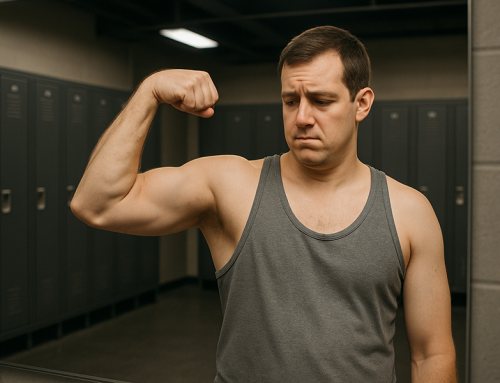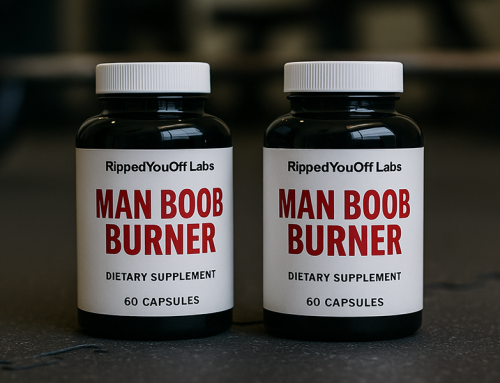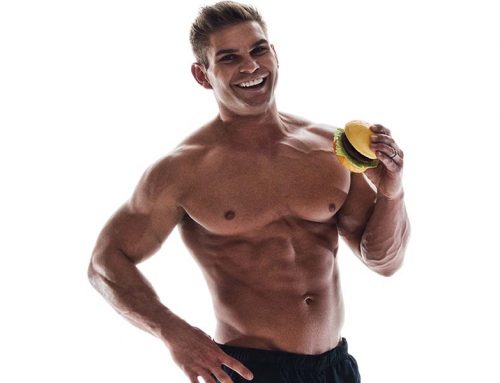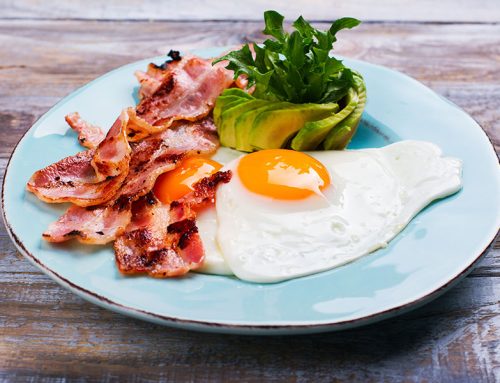In part two of my exclusive interview with bodybuilding and supplement expert Will Brink you’ll learn the latest recommendations for post-workout nutrition, protein secrets including the latest on whey protein and protein denaturation, waxy maize: is it the bomb for carbing up or just another overrated fad?, cardio for the bodybuilder vs the average Joe, and much more
continued from Part One
Tom Venuto: I asked a drug free bodybuilder this question recently and I’m going to ask again to get another perspective. If a man takes testosterone replacement therapy can we still say he’s natural, from a natural bodybuilding perspective? What if he also takes growth hormone for “anti-aging” purposes?
Will Brink: Unfortunately, I have to re state that from a scientific perspective, I can’t make that judgment, but the question shows what a slippery slope the very term “natural” can be. If a person needs testosterone replacement for his health, but it also gives him advantages over those with naturally lower testosterone levels, are they cheating? Some would say yes, some would say no. And as you mentioned in your question, what about growth hormone? Thyroid? I take thyroid every day due to a non- working thyroid gland. Am I cheating if I compete in a “natural” show? For me, I think it simply exposes the fact that the very term “natural” is of no real value. I mean, uranium is “natural” but you don’t want to eat the stuff! I view the whole “natural” debate as really more of an ethical/moral/philosophical issue vs. a science issue.
Tom Venuto: Good points. I think it’s important that each of us define natural for ourselves and in my opinion, the line of what natural is can certainly be drawn by the rules and banned substances list of the bodybuidling organizations you compete in. You were years ahead of the curve on recommending whey protein as an excellent protein source, but beyond that you were saying years and years ago it had functional properties. Now I’m seeing studies left and right saying whey is a functional food or health food. What’s the latest you’ve heard on whey and would you go as far as to consider whey one of the “super foods” in regards to health benefits.
Will Brink: Well I’m always hesitant to call anything a “super food” as it’s such a common marketing term, but whey has an impressive track record in the research at improving immunity, reducing oxidative stress, potentially reducing cancer rates, to name only a few of it’s potential benefits. And that’s all above and beyond its being a great protein for athletes due to a high biological value and high BCAA content. I have not seen anything new on whey in terms of a new effect, but there has been new research confirming earlier studies. One of the more interesting group of studies I found was on whey’s use as a weight loss aid, in that it appears to have a multitude of benefits to dieters, which I put together as an article called The Whey to Weight Loss people can find on my web site.
Tom Venuto: Yeah, I’ve also seen fairly recent research saying that whey had potential weight loss benefits, and it was attributed to a possible appetite suppressing effect. I get this next question all the time since I started posting recipes in my forum. Protein can be denatured at a high enough temperature , correct? But what about my favorite recipe – oatmeal pancakes where I mix the protein powder with oatmeal then put it on a fry pan for a few minutes at medium temp? And what about using whey protein in baking, like high protein muffins. And while were at it, what exactlyDoes it mean to denature a protein? Is it completely ruined, or even dangerous?
Will Brink: Put simply, to dentaure a protein (called denaturation) is to cause a structural change in the protein. This can happen due to heat, but other conditions can also denature proteins, such as enzymatic hydrolysis, changes in pH, and others. For example, when you eat a protein and it hits the stomach acids, the protein is denatured to some degree so enzymes can get at it and continue with digestion. Denaturing proteins has gotten a bad rap as people associate it with ruining a protein, but that’s not technically true. Denaturing proteins can be both a negative or a positive, depending on the protein and what effects one is looking at. In some cases, it can actually be a positive as denaturation make proteins more digestible. For example egg whites; raw whites are far less digestible then cooked, which makes raw egg whites a poor source of protein. Where denaturaton is a negative, is in proteins that have a specific biological effect, That is, proteins with some specific biological activity, such as whey. Whey is made up of various smaller proteins – these protein being responsible for the effects on immunity and such – which lose their biological activity if denatured. Thus, whey manufacturers who wish to maintain the biological activity of the whey, have to use various low temp methods not to destroy these proteins. However, the protein content of the whey is the same, though it wont have the various beneficial effects whey is known for beyond just being a good protein source. The topic can get complicated quickly, but the take home is, denaturation is not inherently a negative and one has to look at the protein in question.
Tom Venuto: Post workout nutrition recommendations seem to be changing. First it was just whey after the workout, now some are saying use a mix of fast and slow proteins. And I know some of our readers will have a hard time believing this, but there are experts recommending chocolate milk as a great post workout drink and they base that on published studies! What’s new on the post workout nutrition front?
Will Brink: I think the essential message, that some protein and carbs immediately after, and perhaps before, a workout is beneficial. That has not changed and I doubt it ever will. Exactly how much protein, which proteins, how much and which type of carbs, etc, and so on is still being hashed out, but solid recommendations can be made. At the same time, as I wrote in an article called “The Religion of Pre and Post Workout Nutrition” recently:
“As expected, supplement companies—and self–proclaimed ‘net guru types—have used what does exist for research to convince everyone that that if they don’t take in exactly 98.7 grams of carbohydrates and 37.2 grams of protein within 28 seconds after they leave the gym, their muscles will be attacked by every muscle-hating hormone they possess in their body by second 29; with the prior year of hard work in the gym totally wasted by second 30!”
Meaning, people over focus on the topic and worry too much about it. I also cover the studies showing chocolate milk is probably a perfectly adequate post workout drink. People should take a look at that article on my web site for all the details.
Tom Venuto: What’s the deal with waxy maize? I take a few years off competing and then come back and everybody is carbing up on this stuff! Am I a bodybuilding dinosaur because I’m still carbing up on oatmeal and potatoes and rice?
Will Brink: Actually that’s an interesting story, and I am writing an extensive article on that as we speak. The down and dirty is, it’s over-hyped and there is better money spent on other things. Studies are quite clear, waxy maze is at best about equal to dextrose and maltodextrin as a carb source, with some studies showing it to be inferior to malto for glycogen synthesis, performance, etc. There’s a big waxy maze craze going on right now, and it’s based on exactly nadda, and studies show it’s nothing special. So why have you read it has all these amazing properties that started this run on waxy maze? That’s where it gets fuzzy. The carb source that was found to have essentially all the benefits being claimed by waxy maze is not waxy maze, not even close. The carb source – which has been directly compared to waxy maze in humans in the studies – showing all the benefits being claimed by waxy maze is Vitargo, a high molecular weight low osmolality carb source with data and patents to back up its claims. This will be news to many reading this and probably the first they have ever heard these facts, but busting myths and giving the facts is what I do, so some using or selling waxy maze will not be happy with me for blowing the whistle. Needless to say, I will have an extensive article on this topic shortly that will go into detail on all that, so stay tuned!
Tom Venuto: Cardio for the bodybuilder. Are your recommendations any different than cardio for the average person or overweight person?
Will Brink: Not really. That is, the basic rules are the same: you do the minimum cardio you have to do to get the effects you want, and realize resistance training/weight training and diet/calorie manipulation are the key to changing body composition. Assuming changing bodycomp is the major focus vs. performance or cardio vascular health, etc. It’s somewhat individual, but one fact remains: cardio is overrated for fat loss and resistance training is underrated for fat loss. I have gotten several national and pro level bodybuilders ready for shows with zero cardio. Depends on the person. For example, the person who is naturally lean but has a hard time putting on and or keeping muscle when dieting, does not need cardio. For him or her, it’s a negative. For that person who has little trouble adding size and weight, that person will benefit from cardio during a fat loss phase. Cardio has its place ina fat loss program, but people over estimate its benefits and tend to overuse it, and end up losing muscle and mucking up their metabolism. Beyond the general, there are individual variables that have to be figured out such as, what the person’s goals are, their experience levels, how much time they have to dedicate, as well as others. A blanket statement such as “everyone should do X amount of cardio per day” is always a mistake. We teach people to customize their routines based on their own variables in the FLR and BBR programs for example.
Tom Venuto: I saw that you finally joined the blogosphere! Congratulations. Can’t fight technology can we? So when will we see you on you tube and twitter? Seriously, where can we find you online and for those who aren’t familiar with your fat loss and muscle building programs, where can our readers learn more about your programs?
Will Brink: I’m all over the ‘net at this point. However, I was late to the blog thing I admit. The BrinkZone blog has grown rapidly since I started it just a few months ago. Actually, I have several YouTube pages with all kinds of videos, one for my fitness/bodybuilding stuff and one directed at tactical law enforcement (SWAT) which I also do some work with. People that want to check out my many articles, ebooks, blogs, and such, can start at my main site which is BrinkZone.com.
###
Check out will’s bodybuilding e-book at www.BrinksBodybuilding.com – highly recommended!
About Will Brink

About Tom
Tom Venuto is a fat loss expert, lifetime natural (steroid-free) bodybuilder, certified personal trainer, freelance writer, and author of the #1 best selling diet e-book, Burn The Fat, Feed The Muscle: Fat-Burning Secrets of The World’s Best Bodybuilders & Fitness Models( e-book) and The Body Fat Solution (Hardcover, Avery/Penguin Books). Tom is also the founder and CEO of the Internet’s premier fat loss support community, the: Burn The Fat Inner Circle.
BRINK’S BODYBUILDING – NEW EXPANDED EDITION
Independent Researcher Known For Brutal Honesty Reviews Popular Bodybuilding Supplements and Reveals How To Build Solid Lean Muscle Without Drugs
Will Brink is an independent bodybuilding and fitness writer/researcher who is a stickler for the facts and the unbiased reporting of research. If you’d like to see an independent expert’s review of popular bodybuilding and muscle-building supplements, and you’d like to learn which one’s really work and which ones are complete hype, and if you are interested in a science-based muscle building nutrition and training system, then I highly recommend Will Brink’s newest program, Brink’s Bodybuilding. Click here to find out more: www.brinksbodybuilding.com








Leave A Comment